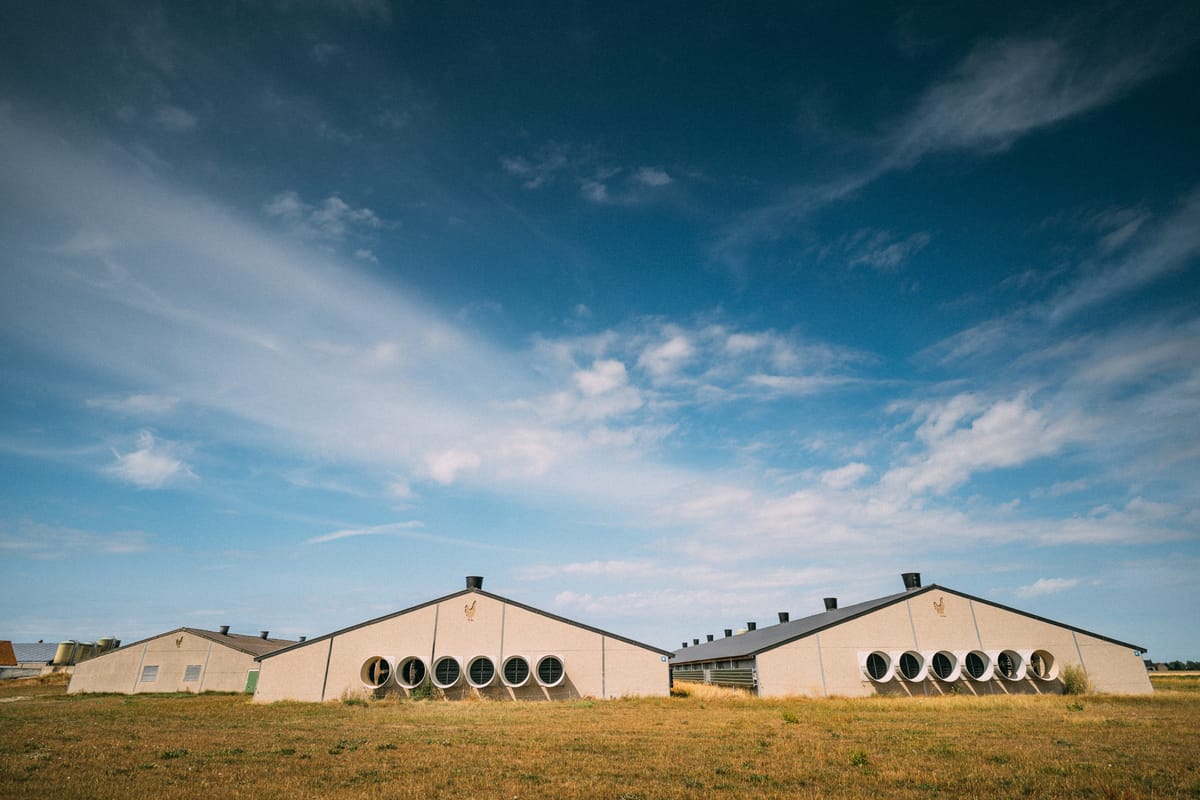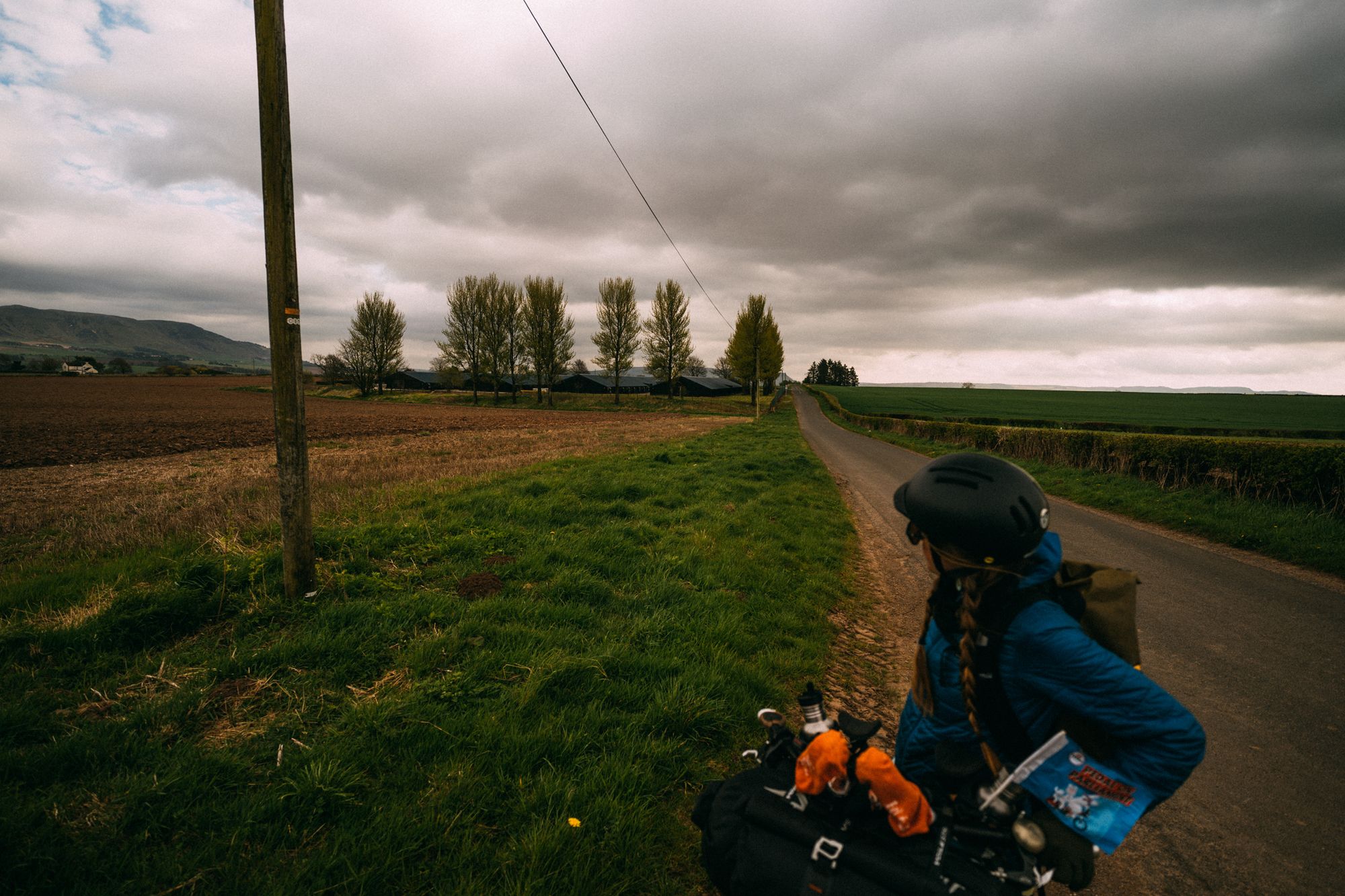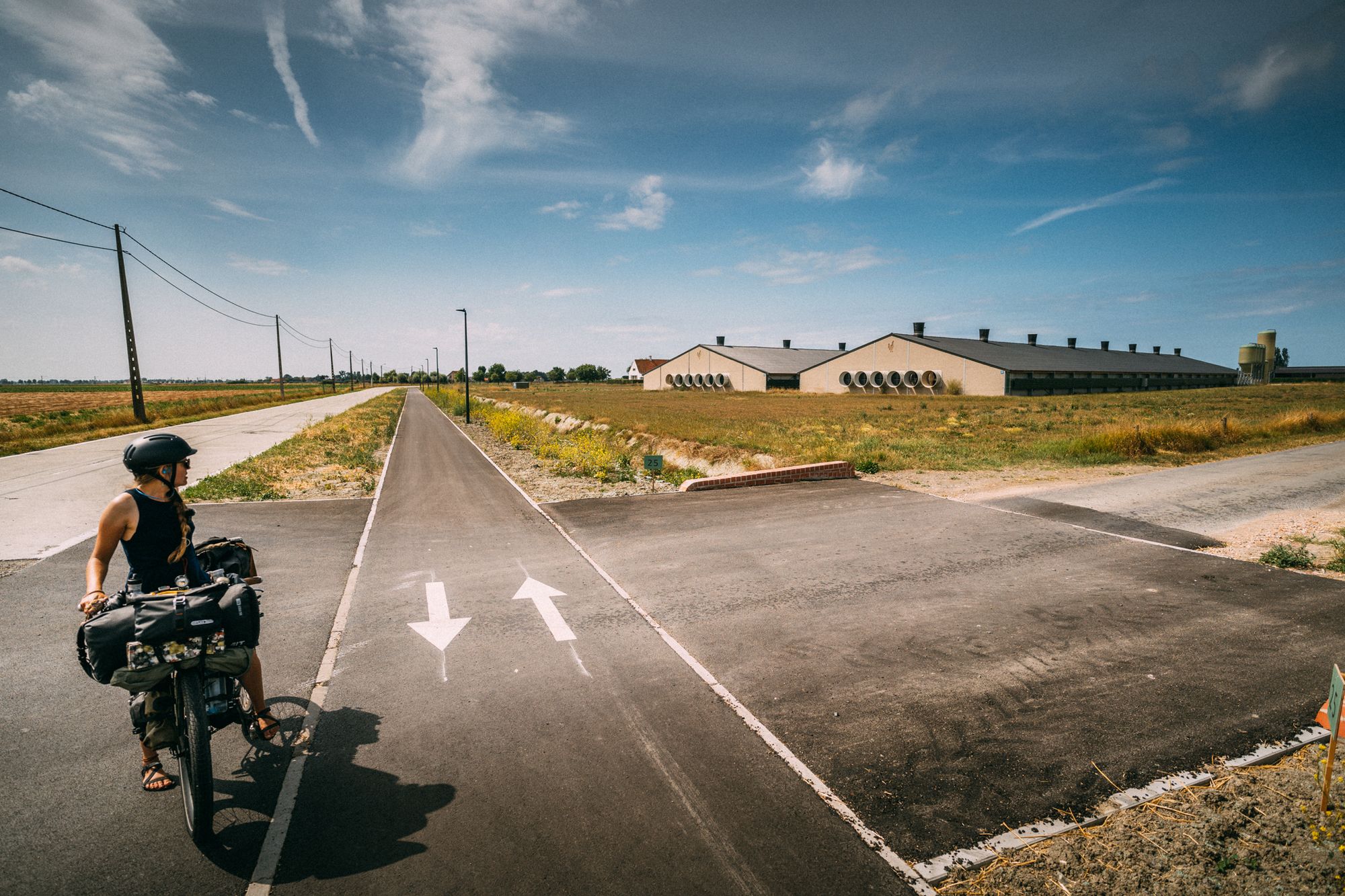Opening Doors to Free the Chickens and Bring on the Revolution

We always smelled them before we realized they were there. That’s how these buildings are designed. To appear inconspicuous. But they couldn’t hide the stench.
Throughout our journey we’ve learned to identify the different buildings of the animal agriculture system. Chicken, pig and cow structures all have particular designs to manage waste, feed and ventilation.
The windowless constructions also emit distinctive, terrible smells.
We are now able to guess the occupants of a building both by its design and the scent emanating from it. Each massive captured band of animals smells differently. This is not a skill we want to have, it simply came about through cycling past these places week after week. The senses begin to pick up on patterns.
The animals don't want to experience life this way, just as we strive to separate ourselves from our own urine and excrement. In the natural world animals have freedom to roam and do not have to live in their own waste as they do in the agricultural industry.


We spotted several massive chicken “farms” while cycling around the UK and through Western Europe. Their cookie-cutter designs from region to region and country to country spelled out a harrowing truth. The industry has animal captivity and production organized down to the last grain of allotted feed. These buildings serve as prisons. They are engineered to function on a tightly controlled schedule in a regimented economic system.
See what the supermarkets don't show us.
Here are a few videos showing the common practice of raising and slaughtering chickens for food.
Inside the chicken factory farm, a short film by Mercy for Animals:
What happens after they are rounded up from the farm?
Most people today are detatched from the killing of animals due to marketing - propaganda - machines and final packaging that removes any hint that whatever inside was once a full bodied animal. Even whole chickens or turkeys seem abstract with their absence of heads, feathers, feet, etc.
We tend to block the mind from thinking about the cold dead flesh as a once lively being with a personality. Or if we do think about live animal, we do so through a defensive and objectifying lens. This is a natural process of life, right? What is natural about keeping an animal in cages and walls for the purpose of killing them? Humans have embarked on dangerous ideas for many long generations, only later seeing the error of their ways. Goethe once wrote,
Truth belongs to the man, error to his age. This is why it has been said that, while the misfortune of the age caused his error, the force of his soul made him emerge from the error with glory.
The video below depicts the process of slaughter.
Warning: Disturbing content. Viewer discretion is advised. If you are going through a challenging phase of life this may not be the best moment to watch this.
However, these videos exist for a single purpose:
They show what the industry often tries to hide. They show what marketing tries to convince you is okay to ignore. They show the truth.
If you feel disturbed by watching the abuse and slaughter of chickens, we suggest exploring these feelings. Do you still consume animals if you know what is happening to them?
The human experience is complex. Sometimes it's not easy for us to simply quit and we're not here to play blaming games. We invite you to open your heart and eyes, feel out what's happening when you watch this, and try to detach from the conditioning you've been raised with. You have the chance to help save billions of lives. In the process, you'll improve your own health and the planet's as well.
Film by Animals Australia:
So what about eggs?
Vegans are often asked why they don't consume the eggs of chickens. After all, the chicken doesn't have to die?
This film reveals what happens in the egg industry, produced by Animals Australia:
And what about backyard hen eggs? If the chicken is lovingly cared for, surely there's nothing wrong about that?
Ed Winters from Surge Activism explains why backyard eggs are off the table:
We humans have been conditioned to eat certain foods. We tend to grow up automatically accepting whatever our caretakers gave us, thinking it must be normal and natural. Looking deeper we begin to see how unnatural and not normal some of these food behaviors are. In many cases, they are downright bad for our health, harmful to animals and of course, to our planet as well.
In this article, Dr. Michael Greger, a physician and food science researcher, reveals the adverse health effects of eating eggs: Why are eggs bad for you and why should you not eat them?
We end this post on a hopeful note. Some people are easily able to give up animal consumption after seeing the suffering done to innocent beings. Others are less swayed by the morality quesiton.
Regardless of your position, no one can deny that adaptation is a natural part of the human story.
There are incredible changes happening out there. While we ourselves advocate for a whole-foods plant-based diet, it is curious to see how people are inventing new ideas to protect animals and offer alternatives created by the power of our human brain.
The ability to think has often gotten us into big messes, but it can also get us out.
What do you think about these new ideas? Nas Daily introduces the Global Revolution of Food:
Written by Karla Sanders @karlasandersart | Photos by Steven Tiller @steventiller | films linked to their creators.